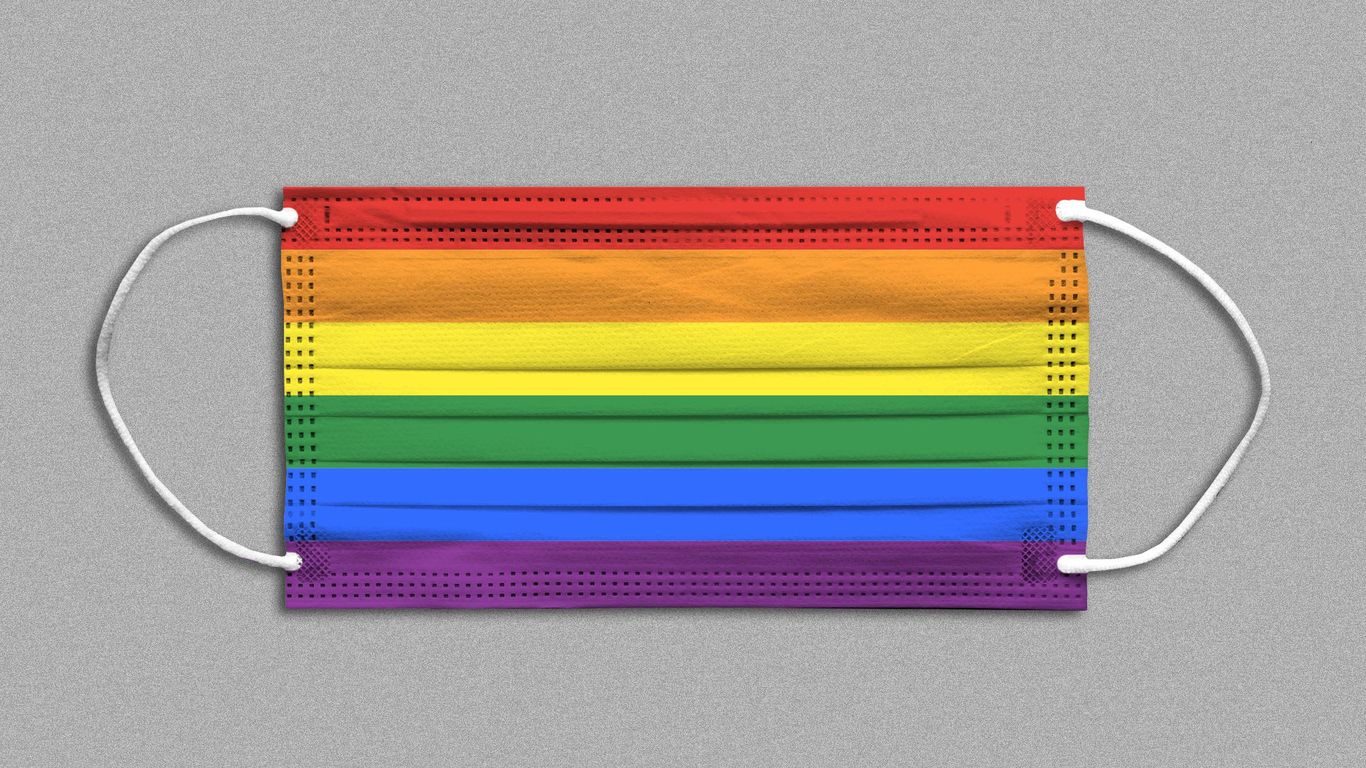
More LGBTQ Americans, particularly young adults, are facing greater risks of bad psychological health, homelessness and lost earnings during the coronavirus pandemic, according to advocates.
Why it matters: LGBTQ individuals were already more vulnerable before the pandemic, due to relentless spaces in healthcare gain access to and employment defenses, even after this summertime’s Supreme Court ruling
In between the lines: Supporters are at the forefront of gathering information on how the pandemic is affecting LGBTQ individuals, while some state federal governments are attempting to capture up.
- California Gov. Gavin Newsom (D) signed a bill in September to track the effects of COVID in LGBTQ people.
- Nevada stated it would begin tracking the virus’ effect on LGBTQ people in August
- ” Due to the fact that LGBTQ individuals are often undetectable when it comes to data collection in a variety of contexts, including healthcare, that has truly restricted our ability to get out details about what’s going on,” Jesse Ehrenfeld, the American Medical Association’s previous board chair, told CNBC this fall
Work
LGBTQ Americans, more of whom were already residing in poverty prior to the pandemic compared to cisgender straight grownups, have reported less access to tasks this year.
- Roughly 35%of LGBTQ respondents to a study by NORC at the University of Chicago and liberal think tank Center for American Progress stated that their capability “to be employed” was adversely affected moderately or considerably this year due to increasing events of discrimination
Homelessness
Tevin Giles, director of youth services at the San Francisco LGBT Center, said that more young people especially have lost their houses during the pandemic.
- ” More of our young people are living on the street and not able to discover a safe location to be or stay due to the fact that the shelter system is overwhelmed,” they said. San Francisco has actually lowered how many individuals can stay in shelters, due to COVID-19
- LGBTQ people, especially trans individuals of color, are at a greater danger of homelessness due to less financial opportunities and less access to LGTBQ-friendly work, Giles included.
- When seeking housing in non-LGBTQ shelters, transgender individuals often have to discuss the fundamentals of their identity in order to receive care from staff who misgender them or separate them in living quarters, Giles stated.
Mental health
A decrease in psychological health has been broadly reported throughout the country during the pandemic. LGBTQ people, especially young adults, had actually currently been discovered to have higher rates of anxiety and stress and anxiety prior to the pandemic.
- The number of LGBTQ youth requesting for crisis support through the Trever Job has “substantially increased” throughout the pandemic, research director Amy Green and research researcher Myeshia Price-Feeney wrote in August
- The number of LGBTQ youth needing crisis assistance has actually been “sometimes even double our pre-COVID volume,” mentioning seclusion from chosen families and quarantining with unsupportive households, Green stated in a subsequent declaration.
Hidden conditions
Growing proof has actually revealed that LGBTQ adults experience worse cardiovascular health compared to cisgender and heterosexual individuals, which the American Heart Association attributes to tension from discrimination.
- Heart conditions or heart diseases, consisting of high blood pressure, can increase the risk of experiencing extreme coronavirus symptoms, per the CDC
- 29%of LGBTQ respondents to the American Development survey said they had actually held off healthcare this year after being sick or injured since they could not afford it.
Methodology for the NORC research
NORC’s probability-based AmeriSpeak panel surveyed 1,528 LGBTQ grownups from June 9-30 in arbitrarily picked households contacted in-person or by mail or phone. The majority of families took part in the survey online, with telephone studies offered. Margin of error ± 3.45%.
No comments:
Post a Comment